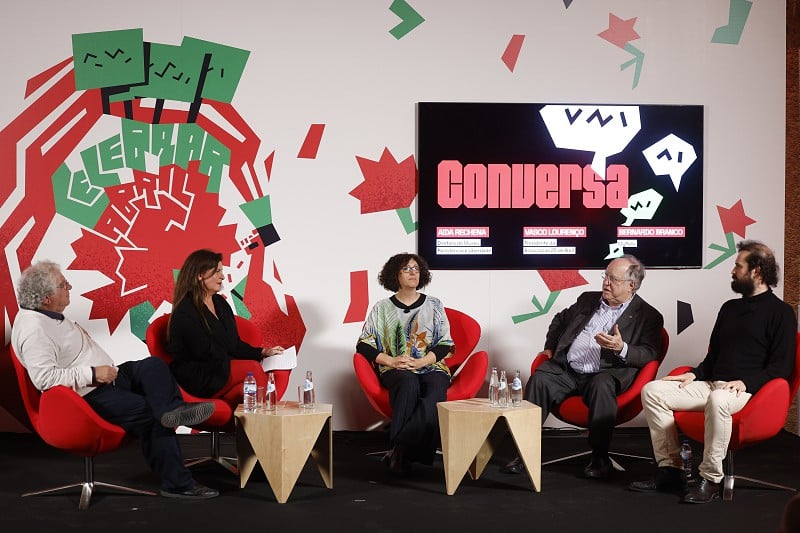The 25 de Abril Interpretive Centre, to be installed in Lisbon’s Terreiro do Paço, should be completed in 2026, according to the forecast announced today, as part of the program to commemorate the 50th anniversary of the revolution.
The project proposed by the 25 de Abril Association to the commemorations committee will be housed in the Ministry of Internal Affairs building, in a space that still needs some work, said the association’s president, Vasco Lourenço, at a press conference to announce the official program of the various initiatives marking the 50th anniversary of the revolution.
“We’re already working on the content,” said Vasco Lourenço, talking about the project launched by the 25 de Abril Association, but which will be managed by the Lisbon Tourism Association (ATL).
The State will provide the facilities and finance the project, while Lisbon City Council will be responsible for the work on the square and the management of the cultural equipment, through ATL. “We are responsible for the implementation, we don’t want to be the owners,” stressed Colonel Vasco Lourenço, who still prefers to be called by the rank of captain, which he considers to be “the best of all”.
“We want to use all the technologies that are possible today to tell what happened there and how it happened,” explained the April captain, who today recalled his time as spokesman for the Armed Forces Movement (MFA) when speaking to the media at the end of the official presentation.
The center will bring together elements to leave a testimony, especially to the younger generations, about the state of the country before April 25, 1974 and the reasons for the revolution: “We need to know what the country was like and why it was necessary to make April 25 happen.”
Vasco Lourenço recalled the many requests that the 25 de Abril Association has received in this year of commemoration of the fiftieth anniversary to go to schools.
The Interpretive Center will be located at one of the most important sites of the military operation that ousted the regime.
During the presentation, Vasco Lourenço admitted that he doesn’t feel like a hero. “Our [the captains’] greatest merit was to take advantage of the conditions that were created by many struggles,” he said, listing the resistance of political prisoners, student struggles and other opponents of the regime.
The official program also includes the reopening of the National Museum of Resistance and Freedom, in the Peniche Fortress, on April 27, the day the political prisoners were released, said the museum’s director, Aida Rechena.
On an academic level, the international congress dedicated to April 25, to be held from May 2 to 4 at the University of Lisbon, has already received more than 200 registrations, said executive commissioner Maria Inácia Rezola.
She also said that 2025 will see the first free elections and 2026 will see the approval of the Constitution of the Republic, currently in force.
The program includes various initiatives in schools, shows, exhibitions, colloquia and literary editions until 2026.
According to the historian, many publishers have asked the commission to use the seal of the official commemorations.
The commission is inaugurating a space on its electronic platform today for citizens to submit proposals and monitor what is being done.
“Operation End of Regime” was unleashed in the early hours of April 25, 1974, under the leadership of young captains and put an end to 48 years of dictatorship in Portugal.









